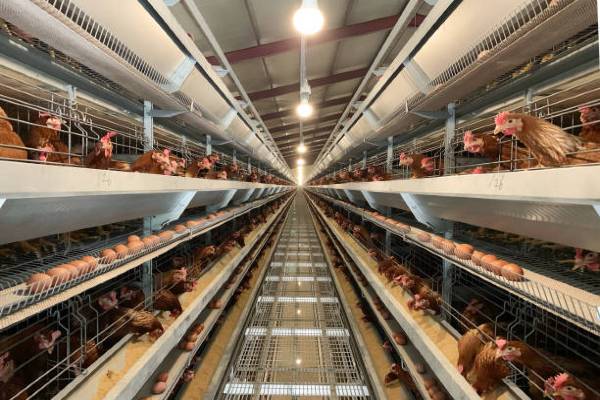Nigeria’s Large Scale Intensive Poultry Farming: Advancements in Technology and Equipment
Time : 2025-06-25
Intensive poultry farming has seen remarkable growth in Nigeria over the years, particularly in large-scale operations. The sector plays a vital role in the nation’s economy, providing employment, income, and contributing significantly to the food supply. This article delves into the advancements in technology and equipment that have been instrumental in the success of intensive poultry farming in Nigeria, focusing on large-scale operations.
—
The Evolution of Intensive Poultry Farming in Nigeria
Nigeria’s intensive poultry farming industry has come a long way from its rudimentary beginnings. With a growing population and increasing demand for meat and eggs, large-scale poultry farms have become a necessity. The evolution has been marked by improvements in technology and the adoption of modern farming methods.
In the early days, farmers relied on traditional practices that were both labor-intensive and inefficient. However, with the introduction of advanced technology and specialized equipment, the industry has seen a remarkable transformation.
Automated Feeders and Drinkers
One of the key advancements in intensive poultry farming is the implementation of automated feeders and drinkers. These systems ensure that the birds receive the correct amount of feed and water at the right time, leading to improved growth rates and overall health.
Automated feeders have replaced the old-fashioned method of manually distributing feed, reducing the workload for farmers and ensuring consistent feeding schedules. They also help in monitoring feed consumption, which is crucial for managing costs and ensuring optimal growth.
Similarly, automated drinkers provide clean water to the birds at all times. This ensures that the birds are hydrated, which is essential for their health and productivity.
Climate Control Systems
Maintaining a constant and optimal climate in poultry houses is vital for the well-being of the birds. Climate control systems, such as automated heating and cooling units, have become standard in large-scale poultry farms in Nigeria.
These systems monitor and adjust the temperature, humidity, and air quality to create an environment that is conducive to the birds’ growth and health. This reduces the risk of disease outbreaks and increases production efficiency.
Monitoring and Data Management
Modern poultry farming in Nigeria relies heavily on advanced monitoring and data management systems. These systems provide real-time data on various parameters, including bird health, behavior, and production levels.
With the help of IoT (Internet of Things) devices, farmers can remotely monitor their poultry houses and take timely actions to address any issues. This proactive approach minimizes losses and maximizes profitability.
Specialized Equipment for Large-scale Operations
Large-scale intensive poultry farming requires specialized equipment to handle the scale of operations. The following are some key pieces of equipment used in these farms:
Brooder Systems
Brooder systems are crucial for the initial stages of poultry production. They provide warmth, food, and water to the chicks during the first few weeks of their lives. These systems are designed to create a microclimate that mimics the natural environment, ensuring the chicks grow healthy and strong.
Modern brooder systems often come with features like automatic temperature control and adjustable feeding schedules.
Ventilation Systems
Ventilation is essential for maintaining a healthy environment in poultry houses. Large-scale farms use advanced ventilation systems that ensure a constant supply of fresh air and proper removal of ammonia and other harmful gases.
These systems are designed to provide optimal airflow without causing drafts that could stress the birds.
Sanitation Equipment
Sanitation is critical in preventing disease outbreaks. Large-scale poultry farms use specialized equipment for cleaning and disinfecting the houses, feeders, and drinkers. These include high-pressure washers, foggers, and steam cleaners.
The Role of Professional Training and Education
The success of intensive poultry farming in Nigeria also depends on the expertise of the farmers. Professional training and education programs have become increasingly important in equipping farmers with the knowledge and skills necessary to manage large-scale operations effectively.
These programs cover a wide range of topics, including animal husbandry, nutrition, biosecurity, and equipment operation. By enhancing the knowledge and capabilities of the farmers, these programs contribute to the overall efficiency and sustainability of the industry.
Conclusion
The advancements in technology and equipment have revolutionized intensive poultry farming in Nigeria, particularly in large-scale operations. The adoption of automated feeders and drinkers, climate control systems, and specialized equipment has significantly improved production efficiency and profitability.
With continuous investment in research and development, professional training, and education, Nigeria’s intensive poultry farming industry is poised for further growth and success.
—












